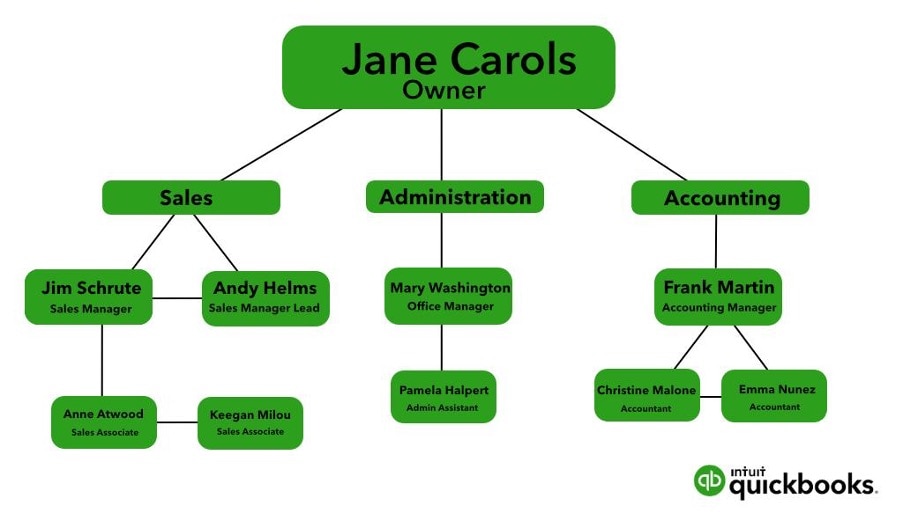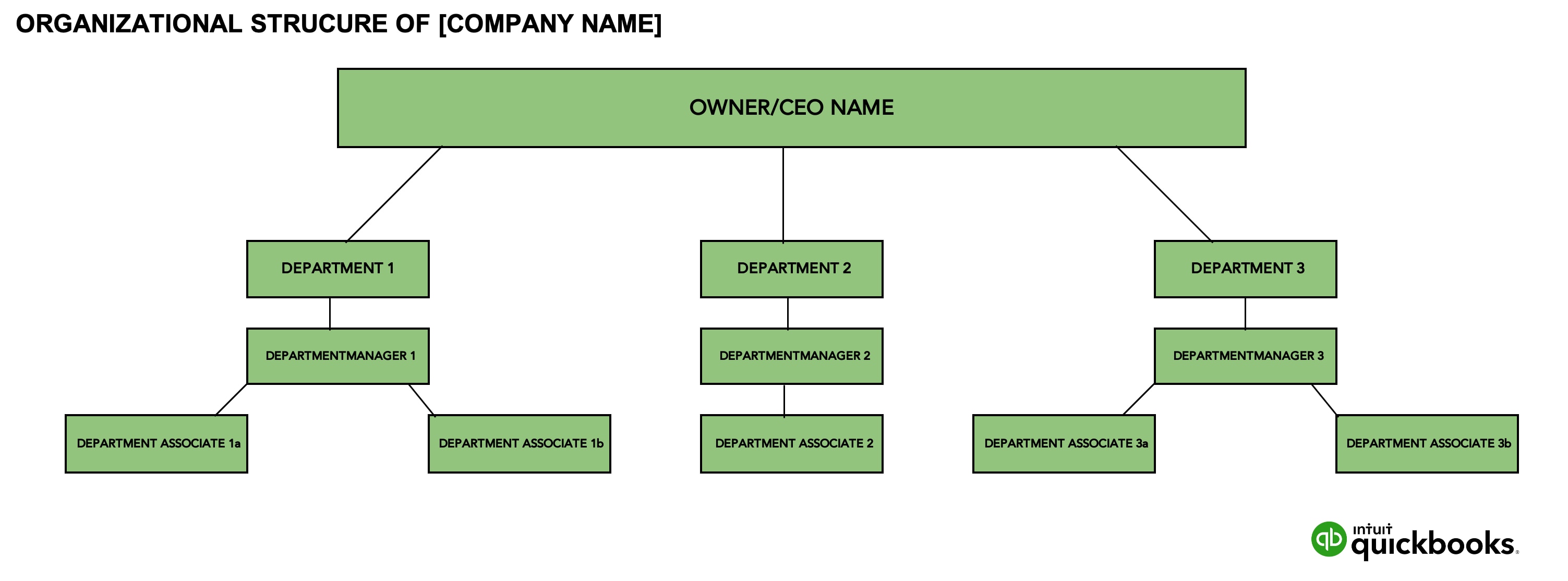Find out how to create your own Organizational Breakdown Structure for your new business. Learn what they are, why they are important, and different organizational breakdown structures and a downloadable template to help you construct your business’ own visual hierarchy.

Constructing the Organizational Breakdown Structure for Your New Business
What is an Organizational Breakdown Structure?
An organizational breakdown structure, OBS, is a visual tool that displays all positions within a business laid out from top to bottom. This structure illustrates the workflow of a company and its employee hierarchy – who reports to whom and who is in charge of what department.
A business’s OBS is tailored using the work breakdown structure in project management. Where the work breakdown structures lay out the necessary tasks and objectives of a project or undertaking, the organizational breakdown structure covers the many different positions employees hold at the small business.
Starting at the top (CEO or founder of the company), to the managers to the associates, the OBS showcases the organizational structure of your company.
How to Use an Organizational Breakdown Structure
An OBS can help startups and new businesses visualize and plan out their business structure. These organizational structures can help small businesses with their workforce management and project management. An OBS showcases the employee hierarchy chart.
The first step in creating an organizational structure is to figure out your business’ employee hierarchy. The chart starts with the small business owner or CEO at the top, then the chart branches off into different departments of the company. From each department, the hierarchy is displayed, starting with the manager, then associates, and so on.
As the OBS is a simple hierarchical model of the business’ employee structure, it is best to include an in-depth description of each position and its responsibilities alongside the visualization.
How to create an Organizational Breakdown Structure
Step 1: Draw the entire small business as a hierarchical structure
Step 2: Define all departments, teams, and employees.
Step 3: Link it to your Work Breakdown Structure
Organizational Breakdown Structure Example

Factors of an OBS
When constructing an organizational breakdown structure there are certain factors you must consider the following:
Specialization and industry
Every industry has different departments and different objectives for each team. A retailer may have a much larger marketing team than a small flower shop. You may outsource your accounting or payroll, so those departments might not be on your OBS.
It is to be expected that each chart will be different depending on your organization. The OBS will be unique to your organization.
Chain of command
The chain of command on an organizational breakdown structure showcases who reports to who. The top being the CEO, and then the people who report to them would be directly below. This pattern continues until every department and level of employment at the company is included.
Span of control
The span of control ties into the chain of command. Once you are aware of the chain of command, business owners should know about the span of control. Span of control refers to the tasks and goals employees are responsible for.
It is important for your employees to understand exactly what their responsibilities are, so they can perform their daily tasks without any confusion.
What Are The Organizational Structure Types?
There are four main types of organizational structures that businesses use to break down their chain of command.
1. Functional Organizational Structure
The functional organizational chart groups employees by specialty, skills, or related roles. This is probably the most common organizational structure type. Small businesses tend to use this type because it groups people who have similar knowledge together, which helps teams and organizations hit their goals.
2. Divisional Organizational Structure
Divisional organizational charts group each organizational function into a geographic or product division. Each vision is broken down into the necessary resources and functions to support the geographic location or product line. This chart is common for large conglomerates.
3. Matrix Organizational Structure
A matrix organizational structure is great for business organizations that have employees report to two or more managers, rather than one manager who oversees all of the projects. This structure is used when skills are shared across departments to complete a task, this way companies can utilize all the talents found in their employees.
4. Flat Organizational Structure
The flat organizational structure is for workplaces with little or no middle management. Usually used in small businesses or start-ups, flat organizational structures allow for a more collaborative and interconnected team, allowing for everyone to contribute equally. Employees tend to have more responsibility and are more involved in important decisions.
Organizational Structure Template
Download this free OBS template and get started on your small business’s organizational structure today.
Benefits of Using an OBS
Systematically laying out the hierarchical structure of your organization can benefit you and your business in many ways.
Reduces communication errors: If everyone understands who does what, and who reports to who, it makes it easier for employees to communicate with each other. Workers can understand who to discuss any cross-team projects. Employees can check the organizational chart when they want to discuss an issue or make a request with someone in their company. The chair will ensure they are communicating with the correct team member.
Ensures coverage of all business responsibilities: By laying it out and having a document that outlines the hierarchical structure of the workforce, you are ensuring that no responsibilities get missed. Plus, the dynamic nature of the organizational charts will allow you to easily add more teams as your company grows.
Keeps employees focused on individual goals: When companies are able to communicate efficiently and understand their specific responsibilities, as well as the overarching goals of the business, they are able to reach their goals quicker. By being aware of the larger picture of the organization, they are able to focus on their individual goals.
Using an organizational structure from the outset can help keep you and your new employees informed of the objectives of your small business. It also helps track who is responsible for what. For even greater insight into employee tracking and scheduling, consider using QuickBooks accounting software.
Once you have the structure of your business and your hierarchy of employees figured out, you’ll need the tools to manage your workforce. With QuickBooks Time you can easily schedule employees and track work hours to keep your organization running smoothly.



